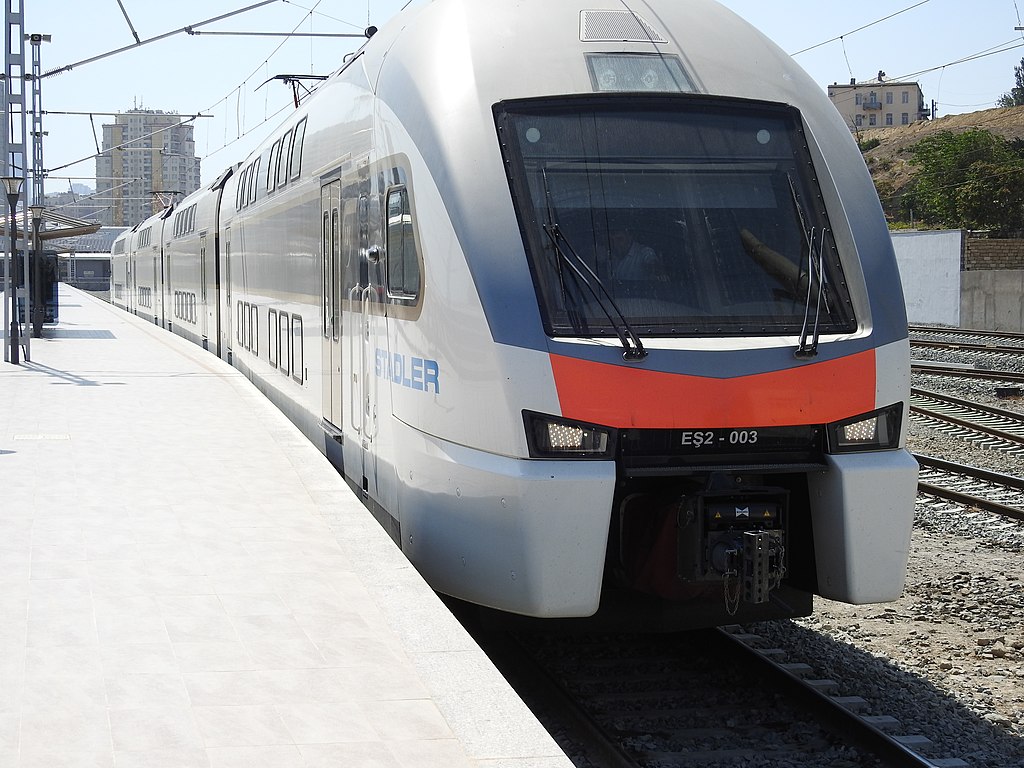Tehran and Baku in (forced) rapprochement
The international sanctions against Russia and Iran have allowed Azerbaijan to exploit its central position, and not only in geographical terms. The bet is on a large north-south transport corridor that would open the doors of the Indian Ocean to Moscow, from where it could circumvent any form of pressure.
Baku (AsiaNews) - Iran and Azerbaijan are two countries that have historically been in conflict with each other, due to mutual claims of territorial and ethnic supremacy, but today the geopolitical changes underway are bringing them closer together due to Tehran's increasingly close ties with Moscow, which inevitably pass through Baku.
International sanctions, of which Russia and Iran are world record holders, cause their economies to depend on export routes for energy materials, as they have to support each other in their opposition to the West, and Azerbaijan tries to exploit its middle position not only geographically, but also in its political relations with its two neighbours and the many Western partners.
There have been several announcements about the construction of a gas pipeline from Russia to Iran, crossing the territory of Azerbaijan, even if for now there are no concrete steps towards its realisation.
Iran is structurally and technologically dependent on Russia, but Moscow's interest in Tehran is linked to the possibility of opening a major North-South transport corridor, given that on the East-West line Russia has been effectively excluded from the major traffic routes that lead from China to Europe, which are increasingly oriented towards the exploitation of routes in Central Asia.
If it were to succeed in reaching Iran, Russia would have access to the Indian Ocean, from where it could circumvent any form of pressure.
In 2023 an agreement was signed between Moscow and Tehran for the joint construction of the 162-kilometre Rešt-Astara railway line between the Azerbaijani-Iranian borders, which connects to the Russian city of Derbent on the northern border of Azerbaijan.
This is a strategic centre on the North-South line, and this part is the subject of ongoing negotiations that are very advanced, as is clear from the recent visit to Iran of the advisor to the President of Azerbaijan, Khikmet Gadžiev.
Immediately after the meeting, the Azerbaijani President Ilham Aliev confirmed the agreement, according to the modifications approved in the meeting with the Russians on 21st December last.
Following these negotiations and confirmations, the necessary installations for the railway stations of the two cities of Astara, the Azeri one and the Iranian one on either side of the border, have begun to be prepared.
Kazem Djalali, the Iranian ambassador to Russia, has meanwhile announced a meeting of the foreign, transport and energy ministers with the customs services of Azerbaijan, Russia and Iran, to agree all the specifications relating to the new directive in the programme.
At the 3rd Caspian Forum, held in Tehran on 17th and 18th February, the Russian Minister of Transport, Roman Starovojt, declared that the preparatory work for the railway line could begin within one or two months.
He added that there is also another agreement in place between Moscow and Tehran, which allows access to technical analyses of the territory even before the process of acquiring the areas necessary for the new railway has been finalised, a procedure that is also essential for determining the real costs of the entire project.
During his visit to Iran on 25th February, the Russian Foreign Minister Sergej Lavrov also reiterated that Moscow is counting on a rapid implementation of the project, which will be financed by the Russian export credit budget. Gadžiev referred to this in order to clarify the real intentions of the Iranians, who would become increasingly dependent on Baku as a result of this initiative.
The three partners are in fact looking at each other with a great deal of mistrust, also in view of the recent tensions between Azerbaijan and Russia after the tragic accident of the Azerbaijani aeroplane that exploded in Kazakhstan due to a Russian missile.
Tehran is trying to understand to what extent Baku's willingness to cooperate could open a period of real collaboration between the two countries, given that the North-South corridor would offer the Azeris a decisive role in recovering the traffic of the Central Eurasian Corridor, placing them at the centre of the ‘alternative world’ from Asia to the Persian Gulf and the Mediterranean.







.png)










